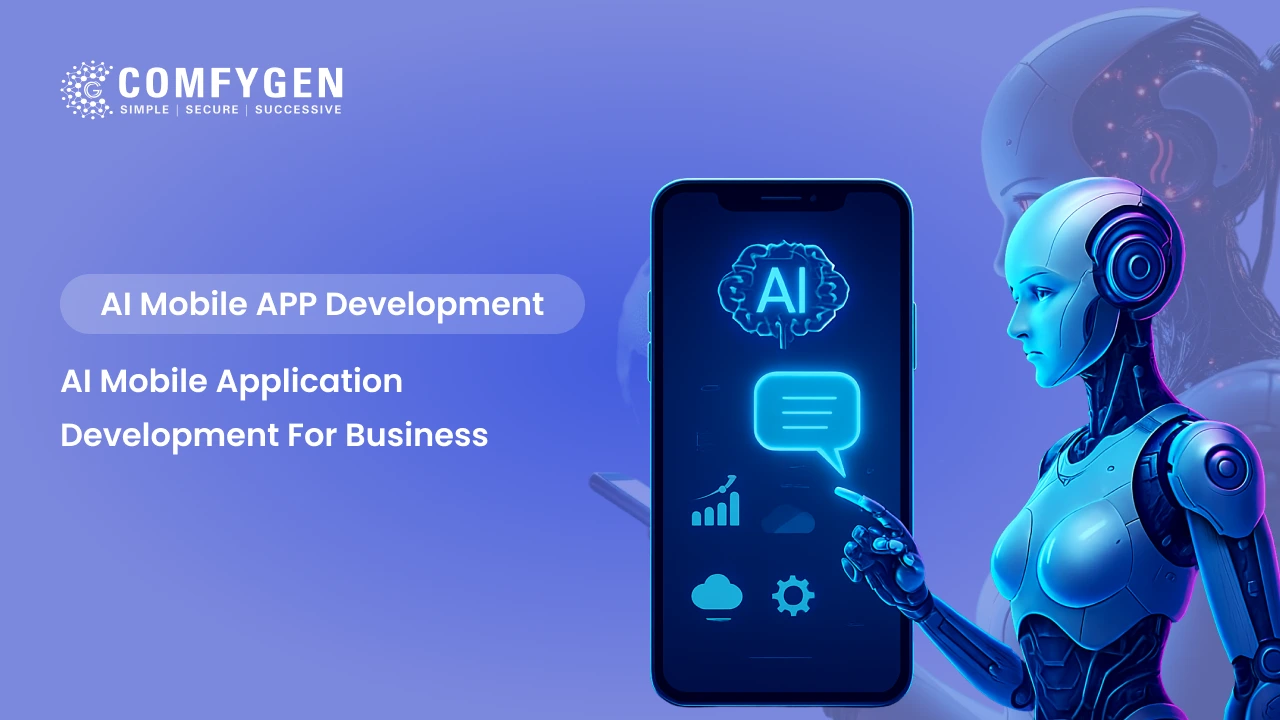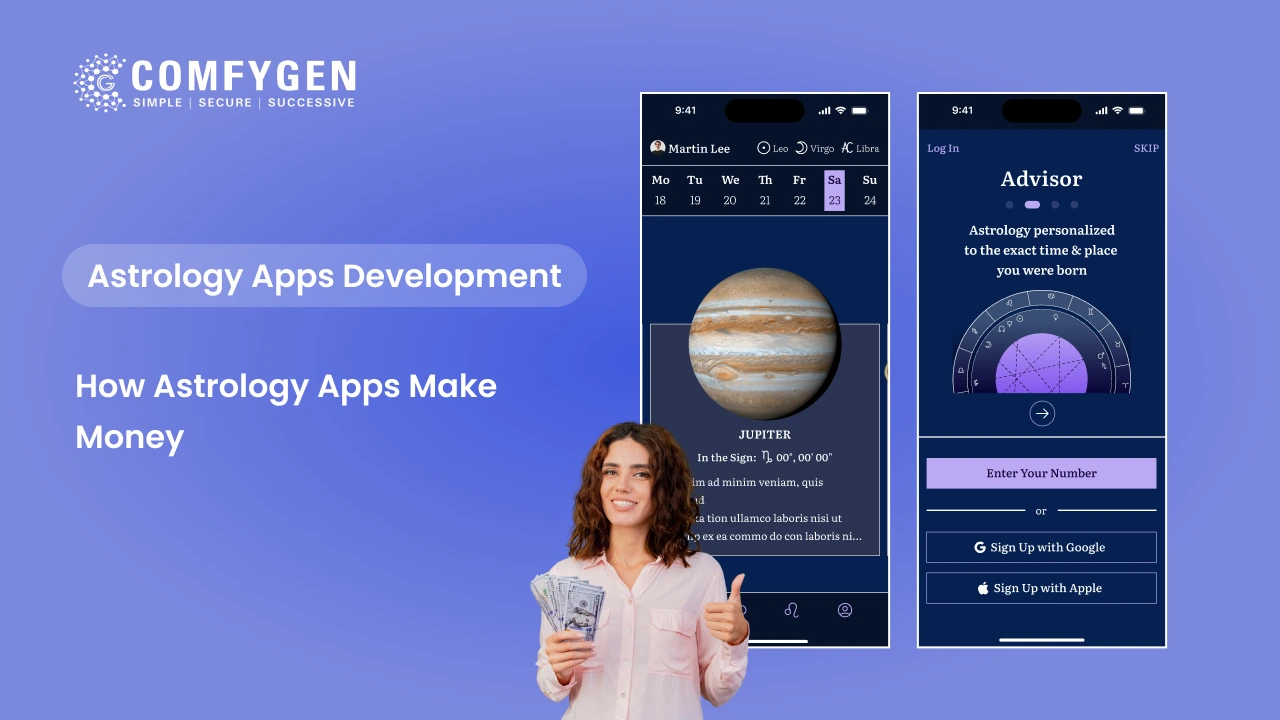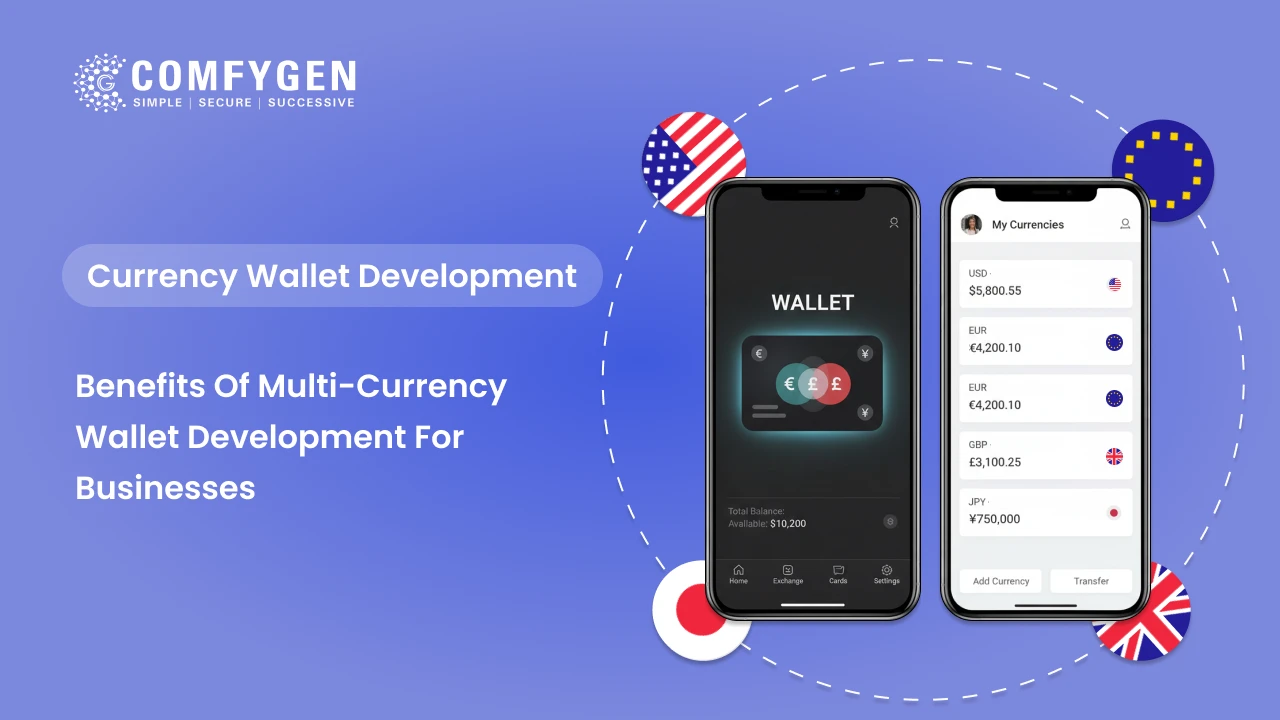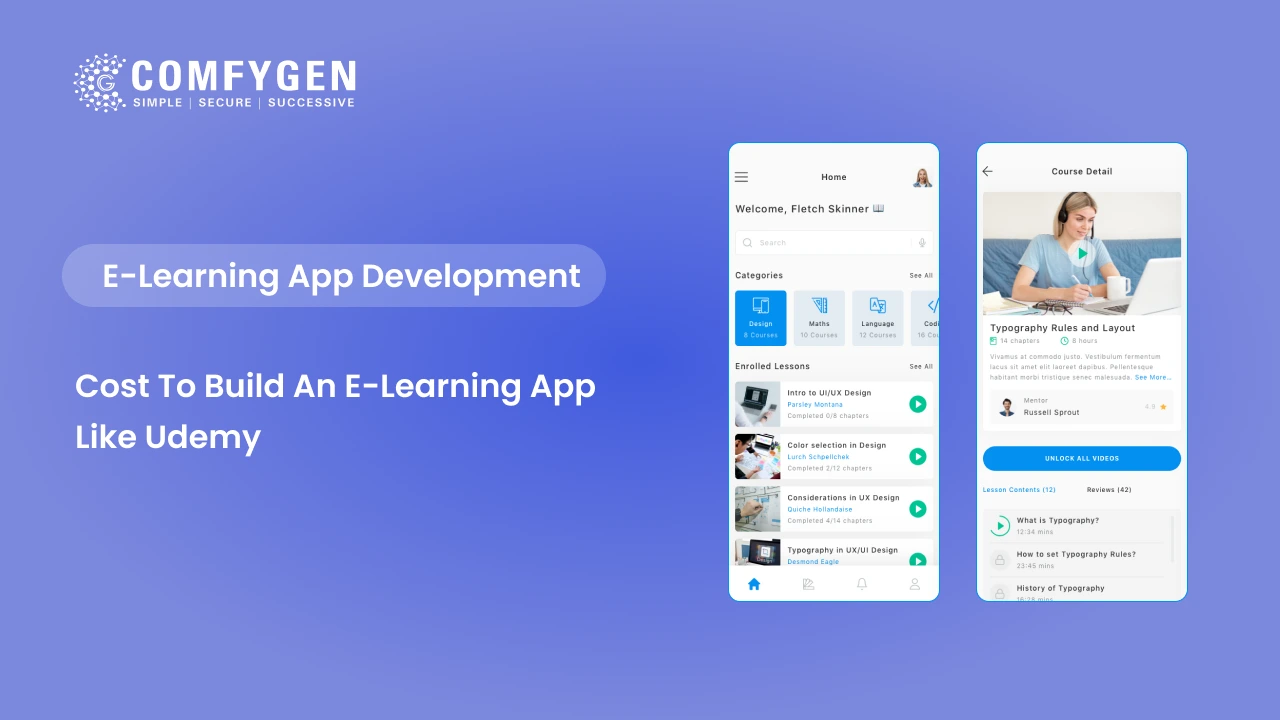AI-Based Mobile Applications Development for Business
In today’s world, AI-based mobile applications have become more essential for businesses to drive growth. But with increasing competition and evolving user expectations, simply having a mobile app is no longer enough. This is where Artificial Intelligence (AI) steps in to revolutionize the mobile experience.
AI is transforming mobile Application development to make it faster and intelligent. AI makes apps more interactive and user-centric using chatbots, voice recognition, and predictive analytics.
The integration of AI in mobile applications offers new opportunities for businesses:
- Deliver hyper-personalized user experiences
- Automate complex processes
- Gain valuable insights from customer data
- Stay ahead in increasingly competitive markets
Consider these compelling statistics:
- The global AI market is projected to reach $1.8 trillion by 2030 (Statista)
- 80% of smartphones will have on-device AI capabilities by 2025 (Gartner)
- Businesses using AI in apps report 40% higher customer engagement rates
This blog explores the impact of AI for mobile app development, the key technologies driving this transformation, the benefits for various industries, and how businesses can get started with AI mobile application development to future-proof their digital strategy.
Importance of AI-Based Mobile Applications
Artificial Intelligence (AI) is a new era for the mobile app industry. By using AI, we can transform traditional mobile apps into smart mobile apps. Smart app features include enhancing user experiences, improving efficiency and accuracy, and enabling smarter functionalities. From personalized recommendations to advanced security features. Here’s why AI is important in mobile apps today:
1. The Rapid Rise of AI in Mobile Application Technology
Recent industry reports show a surge in the adoption of AI-driven mobile app solutions.
- 80 to 85% of customer interactions will be managed by AI by 2025 (Gartner)
- The AI in mobile applications market is growing at 28.3% CAGR, expected to reach $22.6 billion by 2027
- 67% of enterprises now prioritize AI integration in their mobile strategies (Deloitte)
2. From Basic Apps to Intelligent Ecosystems
Modern AI-powered apps represent a quantum leap from their predecessors:
| Traditional Apps | AI-Powered Apps |
| Static functionality | Adaptive behavior |
| One-size-fits-all experience | Personalise experience |
| Manual processes | Intelligent automation |
| Reactive responses | Predictive capabilities |
3. Industry Leaders Setting the Standard
Leading companies are already taking advantage.
- Starbucks uses AI-powered recommendations to drive 21% of total sales through its mobile app
- Uber’s AI algorithms process 20+ million trips daily, optimizing routes in real-time
Why Your Business Needs an AI-based Mobile Application
In a high-competition market AI-based mobile application for your business is very important. AI-based mobile applications have advanced from luxury to a basic necessity. Businesses that fail to adopt AI technology are falling behind competitors who take advantage of deliver superior customer experiences, optimize operations, and drive revenue growth.
Why AI in Mobile Applications Is Essential for Staying Competitive
1. Unique Personalization at Scale
AI enables apps to:
- Analyze users’ behavior in real-time to provide personalized content
- Adjust interfaces dynamically based on individual preferences
- Predict customer needs before they’re explicitly expressed
2. Intelligent Process Automation
AI transforms business processes by:
- Automating customer service 24/7 via chatbots (reducing response times by 80%)
- Simplifying inventory management using predictive restocking algorithms
- Create a logistics route according to delivery planning
3. Data-Driven Decision Making
AI-powered apps provide:
- Real-time business insights from user interactions
- Predictive analytics for sales forecasting
- Sentiment analysis from customer feedback
4. Increased Security & Fraud Prevention
AI Protects your business with:
- Biometric identity verification (facial recognition, voice ID)
- Anomaly detection for suspicious transactions
- Evolutionary security that adapts to emerging new threats
The ROI of AI-Powered Apps
| Business Benefit | Average Improvement |
| Customer Retention | 25-35% increase |
| Operational Efficiency | 30-50% cost reduction |
| Conversion Rates | 15-40% boost |
| Support Resolution Time | 60-80% faster |
Technologies that are used to create an AI for a mobile application.
Creating an AI-based mobile app requires a combination of advanced technologies that help in making smart decisions, real-time learning, natural interactions, and the best user experience.
To build an AI-based mobile application, developers take advantage of a combination of Machine learning, cloud services, natural language processing (NLP), and other trending technologies. Below are the key technologies used in AI-based mobile app development:
1. Machine Learning (ML)
Apps can learn from what users do, without needing new code
Predictive analytics gives personalized recommendations
Business Applications:
▸ E-commerce product recommendations based on recent search queries.
▸ Pricing Comparison
▸ Fraud detection in financial apps
2. Natural Language Processing (NLP)
Allows apps to understand and respond like a human.
Understands context, sentiment, and intent
Business Applications:
▸ AI chatbots solving 80% of customer queries
▸ Voice-enabled shopping
▸ Automated document analysis
3. Computer Vision
Turns camera images into useful information
Creates interactive experiences
Business Applications:
▸AR product try-ons
▸ Document scanning with automatic data extraction
▸ Quality control in manufacturing
Hardware Requirements:
Edge devices with NPUs (Neural Processing Units) for real-time processing
4. Deep Learning
Processes unstructured data (images, sounds, text)
Powers’ most advanced AI features
Business Applications:
▸ Medical image diagnosis
▸ Voice biometrics
▸ Predictive maintenance
5. Generative AI
Creates original content using generative ai
Improve personalized experiences
Business Applications:
▸ AI-generated product descriptions
▸ Personalized marketing content
▸ Code generation
Technology Stack Comparison
| Technology | Best For | Development Time | Accuracy | Cost Range |
| Basic ML | Recommendations, Predictions | 2-4 months | 85-92% | $20k-$50k |
| NLP | Chatbots, Voice Assistants | 3-5 months | 90-95% | $30k-$100k |
| Computer Vision | AR, Image Recognition | 4-6 months | 95-99% | $50k-$150k |
| Deep Learning | Complex Analysis | 6-9 months | 97-99.9% | $100k-$300k |
| Generative AI | Content Creation | 3-6 months | Varies | $40k-$200k |
AI-Based Mobile App Use Cases in Different Industries
AI in mobile applications brings drastic changes in business operations and customer experiences in many industries. Below, we explore real-world implementations that deliver measurable ROI, with specific examples and performance metrics.
Use Case: AI-based Virtual Health Assistant
App Example: MediCare
Overview:
MediCare is an AI-powered mobile application. This app is designed to assist patients with their symptoms, medicine, and old health data. It acts as a 24/7 virtual health assistant, offering symptom analysis, medication reminders, appointment scheduling, and personalized health tips, all powered by AI.
How AI Is Used:
- Symptom Checker: By using Natural Language Processing (NLP) and a machine learning algorithm to understand user-described symptoms and provide possible diagnoses or suggest when to seek medical attention.
- Medication Reminders: AI tracks medication schedules and sends intelligent reminders based on dosage history, user habits, and missed doses.
- Personalized Health Insights: By analyzing user health data (like activity levels, sleeping time and patterns, and diet plans), the app advises customized, better health habits.
- Voice Interaction: Users can speak to the app and receive instant responses, making it accessible for elderly users or those with disabilities.
Business Impact:
- 50% improvement in medication adherence rates
- Reduced unnecessary doctor visits by 30% through early self-assessments
- Increased patient satisfaction with always-available virtual care
Use Case: AI-Powered Learning Assistant
App Example: EduBot
Overview:
EduBot is a mobile learning app powered by AI that personally tailors the learning style, pace, and progress of every student. It delivers personalized lessons, real-time guidance, and smart feedback to enable students to learn better—anywhere, anytime.
How AI Is Used:
- Personalized Learning Paths: The app uses machine learning to analyze a student’s strengths, weaknesses, and progress to create custom lesson plans and exercises.
- AI Tutoring Assistant: Natural Language Processing (NLP) helps students to ask questions in plain language and get instant answers with examples for better understanding, similar to a real tutor.
- Voice and Image Recognition: Students can take pictures of handwritten problems or ask questions verbally. The app understands the student’s query and provides step-by-step solutions.
Business & Learning Impact:
- 60% increase in student engagement through personalized learning
- 40% improvement in test scores among frequent users
- Reduced dropout rates due to real-time academic support
Estimated Cost for an AI mobile Application development
Developing an AI-powered mobile application typically costs more than developing a traditional app.. AI-powered mobile apps depend on advanced technologies and require complex implementations that require specialized expertise. App developers and top mobile app development companies usually charge based on the scope and complexity of the project.
Key Factors That Impact AI App Development Costs
The development cost of an AI mobile application depends on many factors:
- Data-related Costs – Collecting, processing, and labeling data
- Research and Development – Time spent on AI model selection and experimentation
- Team & Resource Costs – Hiring skilled AI engineers, data scientists, and mobile app developers
In addition to these, the following aspects also play a major role:
- Number and complexity of features
- Type of AI functionality (e.g., machine learning, voice recognition, chatbot, process automation)
- Platform choice – iOS, Android, or cross-platform
- Software requirements and documentation
- App architecture and system complexity
- Use of third-party APIs or cloud services
- Location and hourly rates of your development team
The Future of AI in Mobile Applications
Artificial Intelligence (AI) is reshaping the mobile app industry, and this transformation is only just beginning. As AI technologies continue to advance, the future of AI in mobile apps promises more intuitive, intelligent, and personalized experiences than ever before. From enhancing productivity to redefining how users interact with apps, AI is set to become the core engine behind next-generation mobile solutions.
- Smarter Voice and Conversational Interfaces
- Hyper-Personalization Will Become the Standard
- Edge AI for Faster and Offline Experiences
- Proactive & Predictive Capabilities
- AI-Driven Mobile Security
- Seamless Multimodal Experiences
- AI Democratization Through No-Code/Low-Code Tools
Final thought
Artificial Intelligence is modifying the mobile app landscape, enabling businesses to deliver smarter, faster, and more personalized user experiences. From automating complex tasks to predicting user behavior and enhancing security, AI-based mobile apps are becoming essential for driving business growth and innovation.
While the development of AI-powered applications involves a higher level of technical complexity and investment, the long-term value is undeniable. Businesses that integrate AI into their mobile strategy today are setting themselves up for a more agile, competitive, and customer-centric future.
Comfygen, as a trusted AI app development company, specializes in building intelligent, scalable, and high-performing mobile applications tailored to your business needs. Whether you’re starting from scratch or looking to enhance an existing app with AI capabilities, Comfygen provides end-to-end solutions to help you lead in the digital age.
Frequently Asked Questions
How can AI enhance user personalization in mobile applications?
How is AI considered in mobile application development?
Which industries benefit most from AI-based mobile apps?
ndustries such as e-commerce, healthcare, finance, education, logistics, and entertainment greatly benefit from AI apps due to automation, personalization, and data-driven insights.
What are common features of AI-powered mobile apps?

Mr. Saddam Husen, (CTO)
Mr. Saddam Husen, CTO at Comfygen, is a renowned Blockchain expert and IT consultant with extensive experience in blockchain development, crypto wallets, DeFi, ICOs, and smart contracts. Passionate about digital transformation, he helps businesses harness blockchain technology’s potential, driving innovation and enhancing IT infrastructure for global success.
Based on Interest
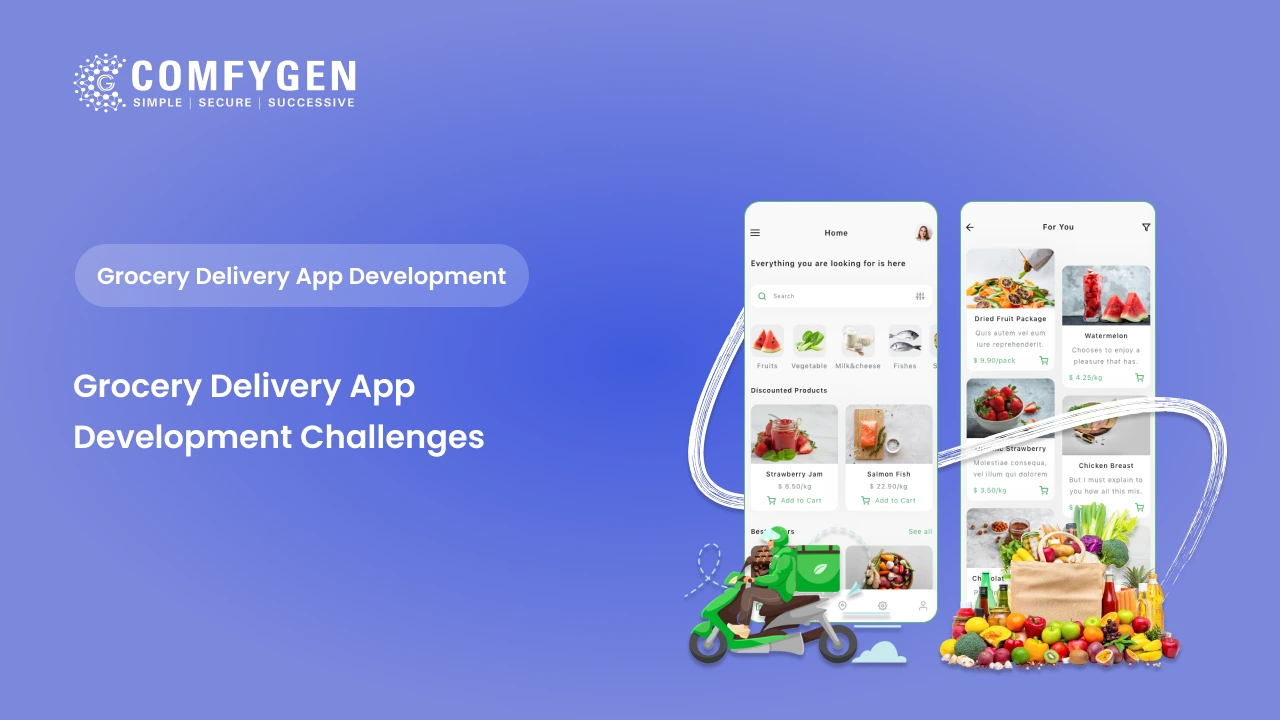
Grocery Delivery App Development Challenges: Common Problems and How to Overcome Them
In today's fast-paced digital age, the online grocery delivery industry is experiencing significant growth. With consumers preferring doorstep facilities over traditional shopping,…
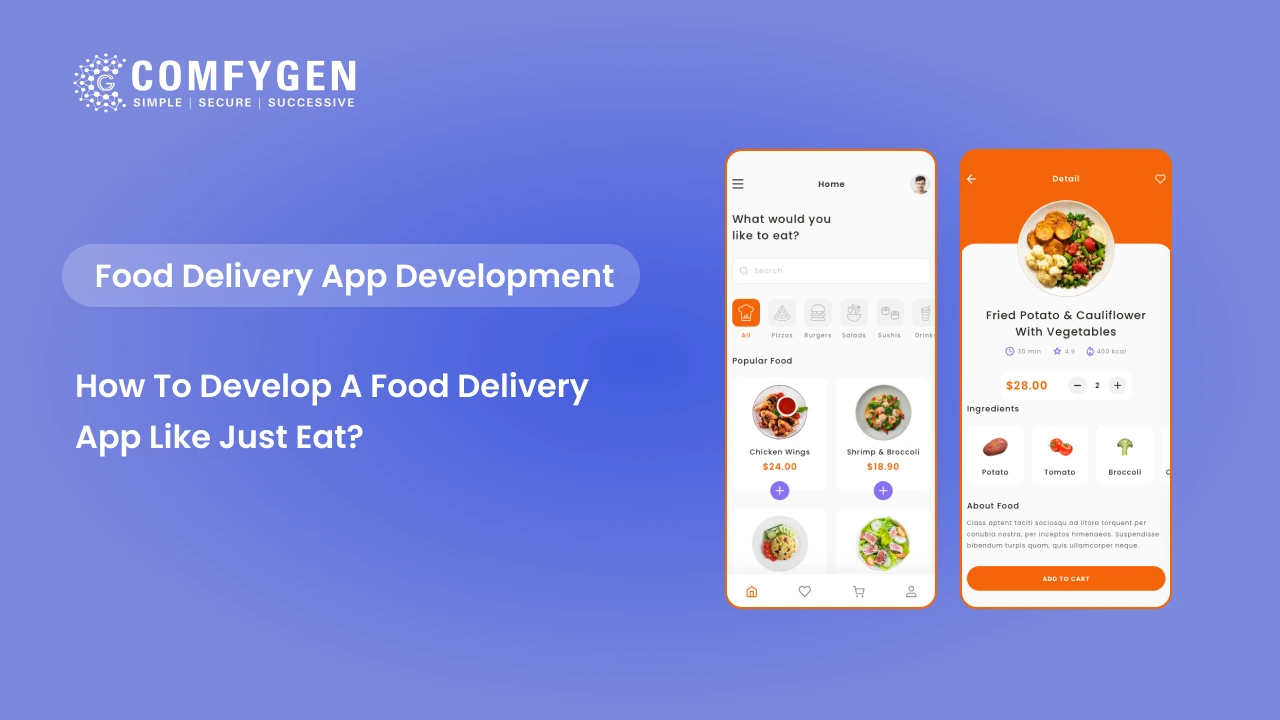
How to Develop a Food Delivery App Like Just Eat
The food delivery industry has experienced exponential growth in recent years. With users preferring convenience over traditional dining, businesses are investing heavily in food delivery app development. One…

